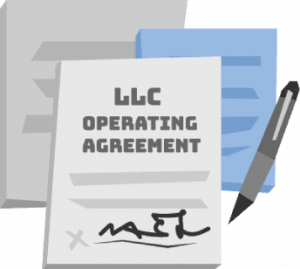How to Start an LLC in Puerto Rico
If you’re looking to start a business in Puerto Rico, an LLC (limited liability company) might be a great choice. LLCs offer stronger liability protection than being a sole proprietor or part of a general partnership, and more flexibility than a corporation in how it can be managed and taxed. That versatility makes LLCs useful for many different kinds of businesses.
To form your LLC in Puerto Rico, you’ll file a Certificate of Formation with the Puerto Rico Department of State and pay a $250 filing fee. We’ll show you everything you need to set up your Puerto Rico LLC and keep it maintained in this guide.
Para nuestros clientes dueños de negocio de habla hispana, tenemos representantes listos para ayudarles a comprender los formularios estatales y resolver sus preguntas, puede llamarnos al 509-267-1307.
FORM YOUR LLC – $39 + STATE FEES

1. Naming an LLC in Puerto Rico
You can’t leave anything undecided when filling out your LLC’s Certificate of Formation, which means you need to know the name of your business before you file. Puerto Rico does have a few requirements to follow when naming your business (these rules can be found in PR Laws Title 14 § 3952.) In particular:
- Your LLC’s name must contain one of the following phrases or abbreviations: Limited Liability Company, Compañía de Responsabilidad Limitada, LLC, CRL, L.L.C., or C.R.L.
- Your LLC’s name can’t be in use by any other business entity in Puerto Rico.
You can use the Puerto Rico Department of State’s Corporations Search directory to verify that your business name is available.
Tip: If you need to delay forming your Puerto Rico LLC but still want to secure a business name, you may reserve one for up to 120 days by submitting an Application for Reservation of Corporate Name to the Puerto Rico Department of State and paying a $75 filing fee.

2. Get A Domain Name for Your LLC
An online presence is a core part of a business’s branding strategy. So, once you’ve ensured that your preferred LLC name is available in Puerto Rico, you should see if a matching or complimentary domain name is available. A domain name is your business’s parcel of land on the internet, and it’s where you’ll eventually build your business website, so you’ll want something snappy and consistent with your company name.
If you haven’t thought about building a website yet, don’t worry. Securing a domain name is a cost-effective way to set a foundation for a website in the future. There are some great reasons to consider registering a domain name early in your business journey:
- Registering your domain name alongside your LLC name in Puerto Rico prevents problems with inconsistencies in your branding in the future
- As your business grows, you can invest more resources into growing your online presence with the groundwork of securing a domain name out of the way
- Even without a website built, you can use a domain name to establish a branded business email account with a professional look that ends in your company name (such as info@YOURCOMPANY.com)
The best part? Having Northwest form your business will net you a domain name of your choice, registered for a year at no cost to you. And if you want more? You can test drive all of our web services, including email, web hosting, and a prebuilt website with free SSL security for 90 days with no upfront cost.

3. File a Puerto Rico Certificate of Formation
Time to file the paperwork that will create your LLC! The last official step before your LLC in Puerto Rico legally exists is submitting a Certificate of Formation and the associated $250 fee to the Puerto Rico Department of State.
Here’s the information you’ll need to provide when filling out your LLC’s Certificate of Formation:
The name of your LLC in Puerto Rico must follow the rules listed above, including the requirement for an identifier like Limited Liability Company or CRL.
The address you provide for your business must be an actual street address in Puerto Rico.
The mailing address for your business may be a physical address or a P.O. Box.
This is the name of a person or entity you authorize to accept service of process or legal mailings on behalf of your business. You (or someone you know) can be your registered agent, or you can hire a registered agent like Northwest. Puerto Rico requires all LLCs to appoint a registered agent.
Puerto Rico’s laws for registered agents are explained in PR Laws tit. 14 § 3542, but in brief, your LLC’s registered agent must:
- Have a physical address (not a P.O. Box) in the state of Puerto Rico.
- Be present at their address during regular business hours.
- Accept important mail (including lawsuits) from the Puerto Rico Department of State and deliver it to you fast.
Tip: Serving as your own LLC’s registered agent can tie you down to a single location and require you to put personal information in the public record. If your work requires mobility, or if you want to live more privately with your LLC, hire Northwest to serve as your Puerto Rico registered agent.
You’re required to list the purpose of your LLC, but this can be specific or general. If you don’t want to be specific, you can write: For any and all legal purposes for which an LLC can be organized in Puerto Rico.
Provide the name(s) and street address(es) of whoever your LLC authorized to complete your Certificate of Formation. This doesn’t have to be someone within your LLC.
List the names and street addresses of whoever will be in charge of your LLC after the Certificate of Formation is filed.
Here you can either choose a specific date for your LLC to dissolve, or choose indefinite or perpetual. Perpetual means a business that ideally continues forever, and indefinite means you expect your business to eventually dissolve, but no specific date is chosen. It doesn’t make much difference whether you choose indefinite or perpetual here.
This is the date your LLC will officially start. You can either begin effective immediately (the most common approach), or on any date up to 90 days in the future.
The authorized person(s) sign here.
You will also need to provide a business email address where the Department of State can contact you regarding your filing. This business email address does not go on the public record, but everything else on this form will.
How Do You File the Puerto Rico Certificate of Formation?
You can file the Puerto Rico Certificate of Formation with the Department of State by mail, in person, or online.
By mail or in person:
Departamento de Estado de Puerto Rico
Calle San José
San Juan, PR 00901
Maintaining an LLC in Puerto Rico

4. Adopt an Operating Agreement
Just like the name implies, an operating agreement is a document that guides how your LLC operates. It should include important information like how LLC member voting is handled, the allocation of profit, and how to resolve disputes between members. The operating agreement is an internal document you should keep on record at your business, you don’t have to file it with the Department of State.
You might hear that Puerto Rico doesn’t require LLCs to have an operating agreement. That’s technically true, but an operating agreement is a good choice for any LLC. Having one sets rules for keeping your business operating correctly and helps with maintaining your liability protection. Plus, most banks usually want to see an operating agreement before opening an account for a business.
Tip: Our attorneys have drafted an initial Puerto Rico operating agreement template that’s freely available for your use.

5. Getting an EIN for an LLC in Puerto Rico
Once your Certificate of Formation has been approved by the Department of State, it’s time to apply for an EIN (Employer Identification Number). An EIN is the number the IRS (Internal Revenue Service) uses for identifying a business on tax forms. It’s basically a social security number for your LLC.
Getting an EIN is mandatory for any LLC with employees or multiple members, and they’re another thing that’s usually required when opening a business bank account. You can apply for an EIN for free directly from the IRS online, or let us get an EIN for you.

6. Get an LLC Bank Account
Mixing personal finances with business finances is dangerous for an LLC, and a good way to lose liability protections. That’s why it’s important for your LLC to have its own bank account. Most banks will usually ask to see your LLC’s operating agreement and its EIN. If the LLC has more than one member, you might also need to have an LLC Resolution to Open a Bank Account.

7. File Your LLC's Puerto Rico Annual Statement
LLCs in Puerto Rico are required to file an Annual Statement and pay an annual fee of $150. The Annual Statement is slightly less detailed than the annual report that corporations have to submit, but it serves the same purpose—updating the Department of State on your business’s ownership and contact information. Starting the year after your LLC was formed, your Puerto Rico Annual Statement is due by April 15th every year.
Ready to Start an LLC in Puerto Rico?




